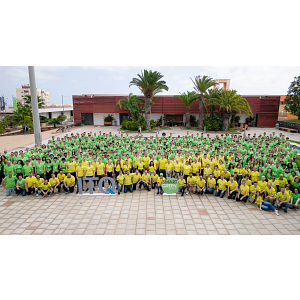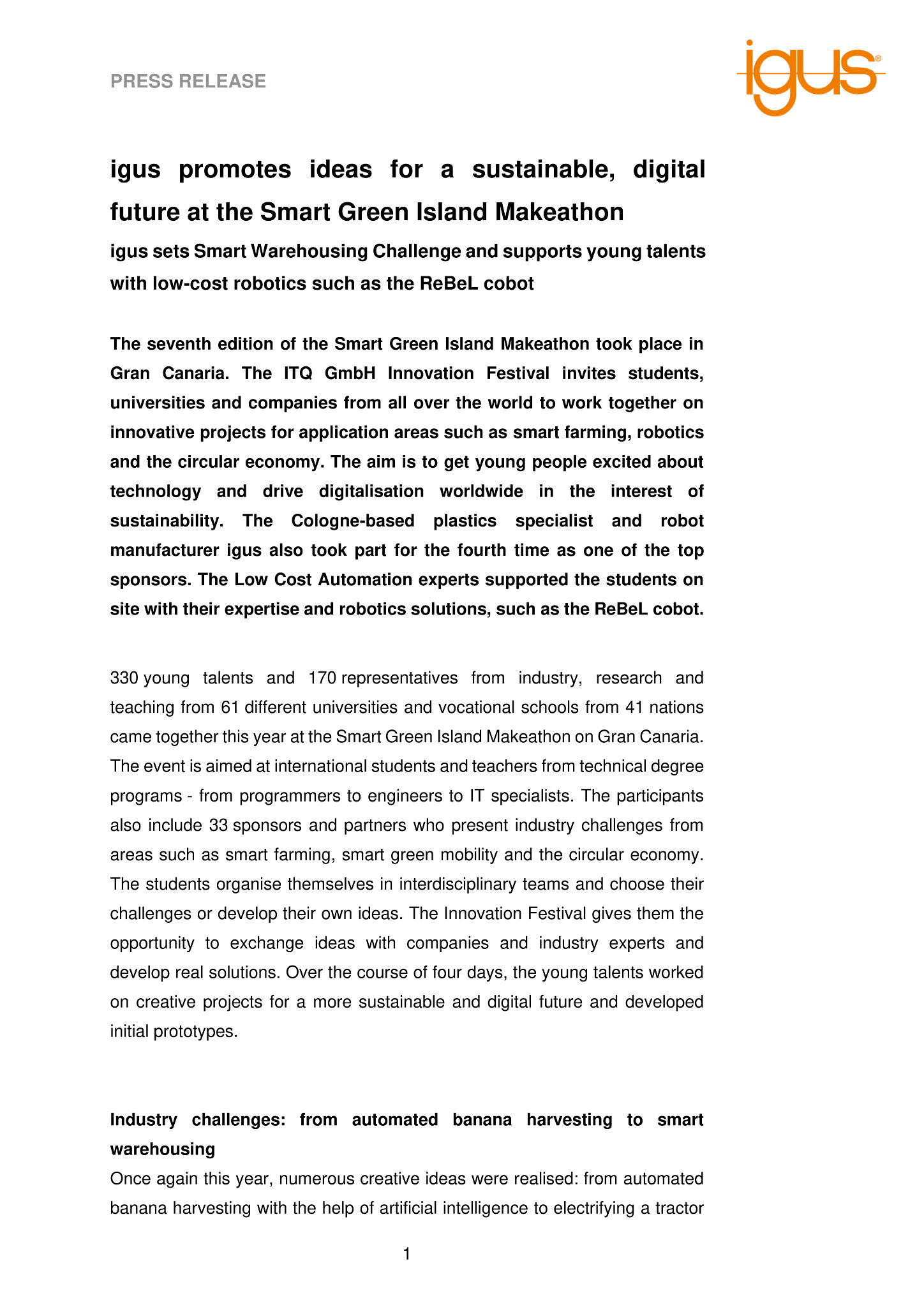igus promotes ideas for a sustainable, digital future at the Smart Green Island Makeathon
May 12, 2024
igus sets Smart Warehousing Challenge and supports young talents with low-cost robotics such as the ReBeL cobot

igus sets Smart Warehousing Challenge and supports young talents with low-cost robotics such as the ReBeL cobot
The seventh edition of the Smart Green Island Makeathon took place in Gran Canaria. The ITQ GmbH Innovation Festival invites students, universities and companies from all over the world to work together on innovative projects for application areas such as smart farming, robotics and the circular economy. The aim is to get young people excited about technology and drive digitalisation worldwide in the interest of sustainability. The Cologne-based plastics specialist and robot manufacturer igus also took part for the fourth time as one of the top sponsors. The Low Cost Automation experts supported the students on site with their expertise and robotics solutions, such as the ReBeL cobot.
330 young talents and 170 representatives from industry, research and teaching from 61 different universities and vocational schools from 41 nations came together this year at the Smart Green Island Makeathon on Gran Canaria. The event is aimed at international students and teachers from technical degree programs – from programmers to engineers to IT specialists. The participants also include 33 sponsors and partners who present industry challenges from areas such as smart farming, smart green mobility and the circular economy. The students organise themselves in interdisciplinary teams and choose their challenges or develop their own ideas. The Innovation Festival gives them the opportunity to exchange ideas with companies and industry experts and develop real solutions. Over the course of four days, the young talents worked on creative projects for a more sustainable and digital future and developed initial prototypes.
Industry challenges: from automated banana harvesting to smart warehousing
Once again this year, numerous creative ideas were realised: from automated banana harvesting with the help of artificial intelligence to electrifying a tractor and the automated recycling of battery cells using renewable energies. Eight teams took part in the industry challenge organised by igus concerning the topic smart warehousing. The task: developing a service robotics solution that performs pick-and-place tasks in the supermarket and thus helps older people with their shopping, for example. Employees of the sponsoring companies supported the students as mentors and provided expertise and technologies. One of them was Alexander Mühlens, Head of the Low Cost Automation Division at igus. The igus team had all kinds of components at hand: plain bearings, energy chains, linear axes with drive and, above all, the ReBeL cobot. The low-cost robot made of lubrication-free high-performance plastic opens up completely new application areas for service robotics.
Hand in hand for shared solutions
A robot alone, however, does not necessarily lead to a finished application. This requires additional components, which were provided by the various sponsors. For example, the students combined the ReBeL cobot with a suction gripper from Schmalz, enabling it to separate paper and plastic waste. The ReBeL was used together with a linear transport system from Beckhoff to automatically analyse the condition of plants and vegetable patches and irrigate them. The interfaces were programmed on site. “The Smart Green Island Makeathon gives young talents the opportunity to put their university knowledge into practice. They can really work intensively with industrial hardware on real problems and simply try things out,” emphasises Mühlens. “They themselves were surprised that in the end each team developed a prototype that worked. This is only possible because all students and local companies work hand in hand on site on shared solutions. For me, that is the DNA of a Makeathon.”



